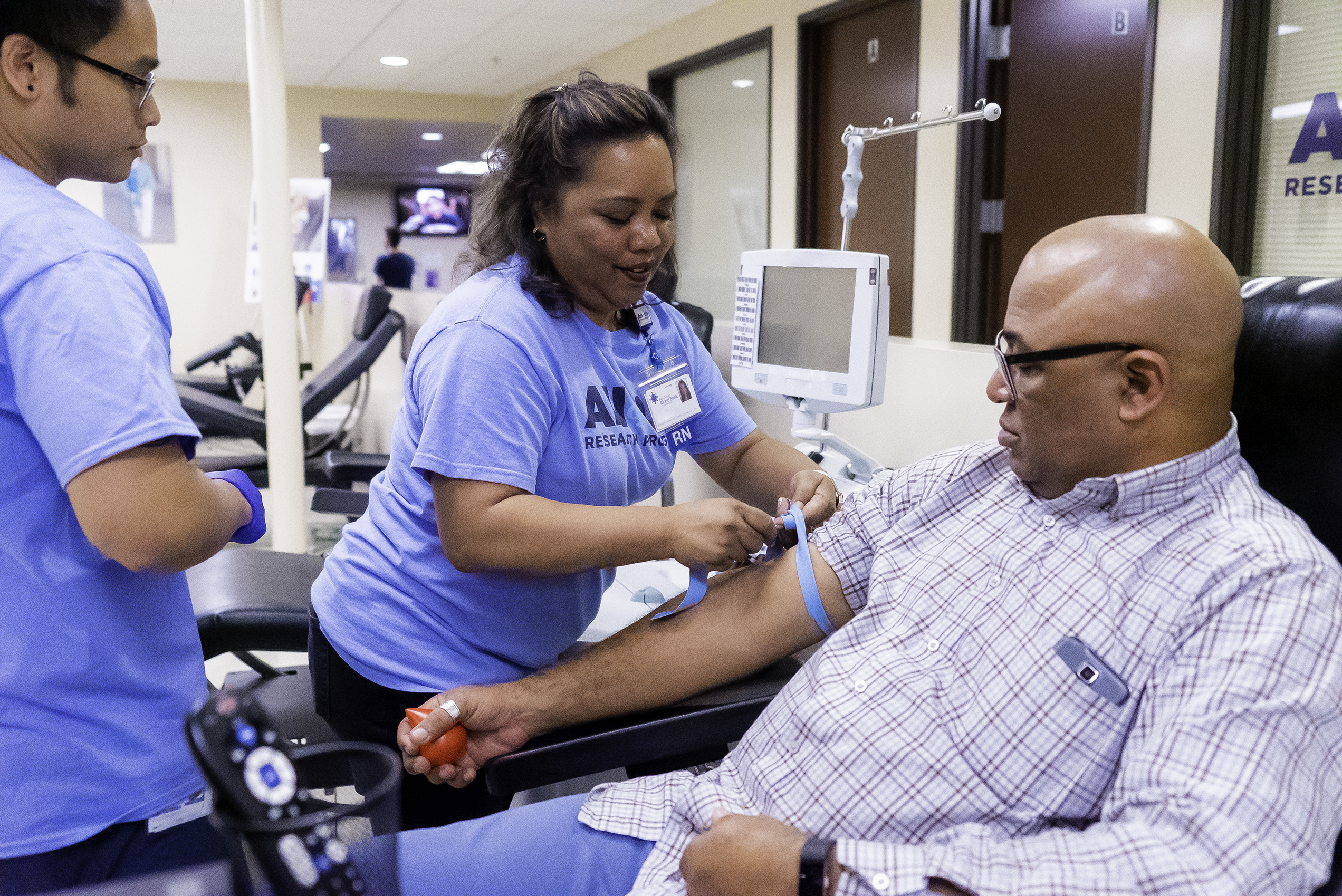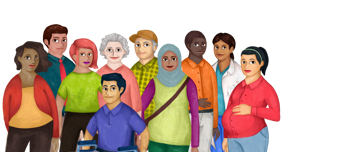
Two All of Us team members begin the process to collect a blood sample from a participant.
WHAT:
The All of Us Research Program at the National Institutes of Health has made strong progress in its efforts to advance precision medicine, according to program leadership in a forthcoming paper in the New England Journal of Medicine.
With information provided by volunteers across the United States, All of Us is developing a robust data platform to support a wide range of health studies. The program aims to include data from 1 million or more people from diverse communities. As of July 2019, more than 230,000 people have enrolled, including 175,000 participants who have completed the core protocol. Of those, 80% are from groups that have been historically underrepresented in biomedical research. Participants contribute information in a variety of ways, including surveys; electronic health records (EHR); physical measurements; blood, urine, and saliva samples; and Fitbit devices. In the future, the program will add new surveys and linkages to other data sets and digital health technologies, and begin genotyping and whole-genome sequencing participants’ biological samples. Data will be broadly accessible to approved researchers, and participants will receive information back about themselves.
In May 2019, with enrollment ongoing, the program released initial summary data at https://www.researchallofus.org/. Now, the All of Us team is planning demonstration projects to assess the usefulness and validity of the data set, in preparation for the launch of the Researcher Workbench—the secure platform where researchers will be able to conduct analyses.
The program’s ongoing success will rely on several factors, according to the authors. The program must continue to enroll participants from across the country, including those in rural and other underserved areas. The program needs to ensure that participants, once enrolled, derive value, remain engaged, and retain trust in the program such that they continue to share data long term. Additionally, the program must continue to protect from cyberattacks, protect participant privacy, and harmonize data from different EHR systems. Work is underway on all these fronts.
The authors anticipate that the program’s value will become even more rich as it matures, enabling new discoveries over time. A goal of the study is to improve population health through the identification of risk factors and biomarkers (including environmental exposures, habits, and social determinants) to allow more efficient and accurate diagnosis and screening, better understanding of diverse populations, more rational use of existing therapeutics, and the development of new treatments.
ARTICLE:
Denny, et al. The “All of Us” Research Program. New England Journal of Medicine, DOI: 10.1056/NEJMsr1809937. 2019. [Full Text]
WHO:
Eric Dishman, director of the All of Us Research Program
Stephanie Devaney, Ph.D., deputy director of the All of Us Research Program
Joshua C. Denny, M.D., M.S., professor of biomedical informatics and medicine, Vanderbilt University Medical Center, and principal investigator, All of Us Data and Research Center
CONTACT:
Veronica Anderson or Katie Rush
NIH All of Us Research Program
AllofUsPress@mail.nih.gov
(301) 827-6877
Craig Boerner
Vanderbilt University Medical Center
craig.boerner@vumc.org
(615) 322-4747
###
About the All of Us Research Program: The mission of the All of Us Research Program is to accelerate health research and medical breakthroughs, enabling individualized prevention, treatment, and care for all of us. The program will partner with one million or more people across the United States to build the most diverse biomedical data resource of its kind, to help researchers gain better insights into the biological, environmental, and behavioral factors that influence health. For more information, visit www.JoinAllofUs.org and www.allofus.nih.gov.
About the National Institutes of Health (NIH): NIH, the nation's medical research agency, includes 27 Institutes and Centers and is a component of the U.S. Department of Health and Human Services. NIH is the primary federal agency conducting and supporting basic, clinical, and translational medical research, and is investigating the causes, treatments, and cures for both common and rare diseases. For more information about NIH and its programs, visit www.nih.gov.
